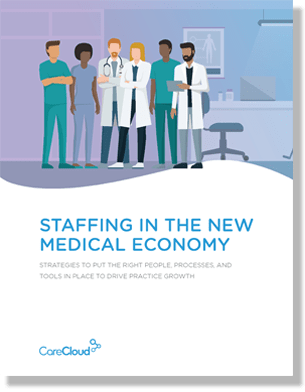The 7 Best FDA-Approved Health Apps for 2024
Mobile technology has transformed healthcare networks beyond any imagination. Today, health applications are not limited to counting steps; they offer advanced tools that help diagnose chronic conditions and sometimes even provide therapy for mental disorders. Many of these have been approved by the Food and Drug Administration (FDA), ensuring they meet safety and effectiveness standards. This article discusses seven of the top 2024 FDA-approved applications.
1. Mobile MIM
Mobile MIM pioneered mHealth technology and was the first to secure FDA approval for visualizing medical images. It enables radiologists and other healthcare workers to view radiological images from diagnostic procedures such as CT, MRI, and PET scans on mobile devices. Mobile MIM also allows secure and quick transfer of these images to other healthcare professionals, creating timely medical intervention.
The app’s benefits are crucial, especially for radiologists who practice at different hospitals simultaneously but are interconnected with technology.
2. AliveCor Kardiya Mobile
AliveCor KardiaMobile is there to manage cardiovascular disease. This FDA-approved product, a device, and a mobile application enable a smartphone to be used like an ECG machine. It allows the users to have their heart rate readings based on their contact with the user’s skin.
In addition to that, AliveCor can detect atrial fibrillation, the underlying cause of stroke. With it, users can monitor their heart rhythms anytime, helping them detect any complications requiring a visit to a hospital.
3. Welldoc’s BlueStar
Managing diabetes is a complicated process, but it has become significantly more manageable with the help of Welldoc’s BlueStar app. Recognized by the FDA as a Class II medical device, BlueStar offers directional feedback to its users from their Glucose readings. Most apps only monitor blood sugar levels, but this app has a coaching feature, making it the most suitable app for diabetes management.
BlueStar works with several blood glucose meters and receives data to give patients recommendations, including when it is time to change the medication or diet. The app also improves patient and healthcare provider communication through real-time health information sharing.
4. Gauss Surgical’s Triton
There are few situations in surgical practice when controlling blood loss and its volume is critically important. Conventional observational assessment of blood loss by the eyes of the healthcare provider has always been imprecise, leading to profound implications. The app developed by Gauss Surgical, known as Triton, turns the game around by applying artificial intelligence technology to quantify blood loss during surgery.
It can capture images of blood-soaked sponges and other instruments and then deliver vital statistical information on blood loss to clinicians in real time. This app is necessary for high-risk invasive operations where accuracy on blood consumption is critical.
5. Rejoyn
Rejoyn is FDA-approved prescription digital therapeutics for the treatment of Major Depressive Disorder (MDD), one of the first of its kind. Intended for use by patients on antidepressants and cognitive behavioral therapy, this app provides supportive care for depression.
Rejoyn incorporates CBT in its functions and also has exercises that shape the users’ thought processes regarding emotions. The six-week anti-anxiety treatment program in the app features daily lessons and exercises that reconnect neural circuits in brain areas relevant to emotional regulation.
6. Welch Allyn iExaminer
Eye doctors need special tools for some diseases, including glaucoma and retinal detachment. However, the Welch Allyn I Examiner system allows healthcare providers to transform their mobile devices into powerful diagnostic instruments. The app synchronizes with an ophthalmoscope adapter to help capture high-definition retina images.
An FDA-approved app also improves the diagnosis’s precision while providing options for storing and sharing the retinal images. This innovation is an invaluable source for clinicians having no, or for that matter, limited access to state-of-the-art diagnostic facilities.
7. AirStrip ONE
Telemonitoring is essential for managing chronic illnesses like heart disease and high blood pressure. AirStrip ONE is an FDA-cleared application that hosts real-time data from medical devices and monitors, patients, and the Electronic Health Record.
AirStrip ONE consolidates data, including a patient’s vitals, prescription records, and other laboratory details, and allows caregivers to view the details simultaneously. This helps the clinicians work better and act as early as possible when needed. They are instrumental in the case of a remote care environment, as constant monitoring will allow problems to be identified in the early stages.
Why is FDA approval necessary?
The guidelines for approving medical apps are quite tight, and all apps must undergo multiple tests before being approved by the FDA. According to the level of risk the application poses to the patient’s safety, the apps are grouped into categories with severe apps, including those used to diagnose diseases or deliver drugs through the body undergoing rigorous scrutiny.
The FDA is also responsible for overseeing most of these apps after approval to check if they are still performing well at a certain period.
Conclusion
The seven FDA-approved health apps highlighted in this article are revolutionizing healthcare delivery. From mental health support and chronic disease management to real-time diagnostics and surgical monitoring, these apps offer innovative solutions that make healthcare more accessible, personalized, and effective. As mobile health technology advances, we expect to see even more FDA-approved apps to enhance patient care and outcomes further.
DUMMY_TEXT




